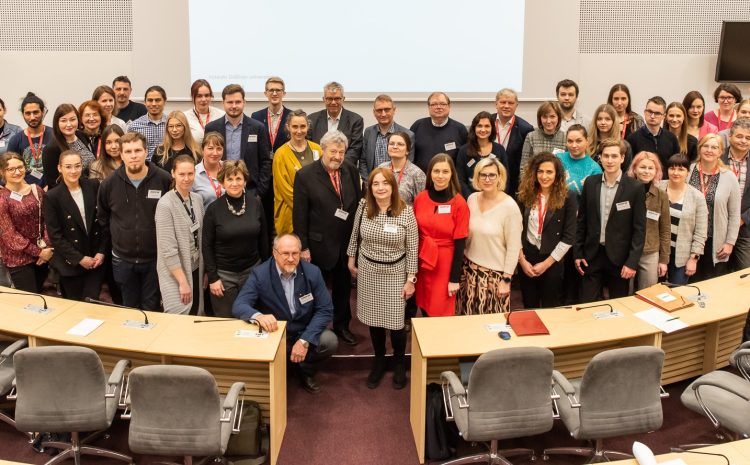

Dear Colleagues,
We are delighted to welcome you to the BalTick25 – Baltic Tick Conference 2025. The Conference will take place in Kaunas, Lithuania on October 1– 3, 2025. The aim of BalTick25 is to promote the exchange of scientific knowledge and advanced practices among experts in acorology, veterinary science, medicine, and ecology, aiming for a deeper understanding of the role of ticks in ecosystems, their impact on human and animal health, and the development of effective strategies for monitoring, prevention, and control. We are pleased to welcome scientists from different countries to give presentations on recent advances in the following areas:
- Tick Biology and Ecology
- Phylogeography and Population Genetics of Ticks
- Ticks as Vectors of Disease
- Diagnosis and Treatment of Tick-Borne Diseases
- Prevention and Control of Ticks
- Veterinary aspects of Tick-Borne Diseases
The Conference will be hosted by Vytautas Magnus University.
We are looking forward to welcoming you to Kaunas!
IMPORTANT DATES
We are pleased to invite you to visit theBalTick25 – Baltic Tick Conference 2025, held in Kaunas, Lithuania on October 1 – 3, 2025
| August 1 | Early bird registration deadline |
| September 10 | Regular registration deadline |
| September 10 | Abstracts submission deadline |
| September 15 | Payment deadline |
| September 20 | Conference program announced |
CONFERENCE FEES
| Early bird | Late | |
| Regular | €200 | €250 |
| Student | €150 | €200 |
| Accompanying person | €100 | €150 |
| Conference tour (lunch included) | €50 | €50 |
| Gala dinner | €50 | €50 |
Registration fee includes:
– Access to the conference
– Conference material
– Coffee breaks
– Lunches
– Welcome party
Accompanying fees includes:
– Coffee breaks
– Lunches
– Welcome party
Payment information
Note that any charges for bank transfer must be covered by the payer.
| Recipient | LIETUVOS ŽALIASIS ALJANSAS |
| Address | VILEIKOS 8, LT-44404, Kaunas |
| Bank | Swedbank AB |
| Bank adress | Konstitucijos pr. 20A, LT-09321 Vilnius |
| Bank code | 73000 |
| SWIFT (BIC) code | HABALT22 |
| Recipient’s bank account | LT06 7300 0101 5273 5372 |
| The purpose of payment | Baltick25, your name and surname |
COMMITTEES
Scientific Committee
Chairman – Jana Radzijevskaja, Lithuania
Krzysztof Anusz, Poland
Anna Bajer, Poland
Birutė Karvelienė, Lithuania
Karen Angeliki Krogfelt, Denmark
Per-Eric Lindgren, Swedan
Auksė Mickienė, Lithuania
Algimantas Paulauskas, Lithuania
Renata Ranka, Latvia
Olof Rosef, Norway
Michal Stanko, Slovakia
Snorre Stuen, Norway
Local organizing committee
Chairman – Algimantas Paulauskas
Asta Aleksandravičienė
Loreta Griciuvienė
Evelina Kaminskienė
Indrė Lipatova
Dalytė Mardosaitė-Busaitienė
Jana Radzijevskaja
Miglė Razgūnaitė
Irma Ražanskė
Dominykas Repečka
Povilas Sakalauskas
Marina Sidorenko
Justina Snegiriovaitė
ABSTRACT GUIDELINES
Conference abstracts will be published in a scientific proceedings volume with an ISSN. They will not undergo language proofreading; authors are responsible for the linguistic quality. Please follow the instructions below when preparing your abstract:
- Language: English
- Structure: Authors provide first name and surname. Underline the presenting author and include their email address. Affiliations and addresses of all co-authors.
- Content: No subdivision into introduction, materials and methods, results, etc.
- Font: Times New Roman
- Length: Maximum of 300 words.
- Line spacing: 1.15, with 3 cm margins on all sides, and align text to the justify.
- No figures, no tables should be included in the abstract.
- References should be included (maximum 5 references).
- Prepare the text as a Word document.
- Name the file after the presenting author: Surname_Name_Baltick25.doc(x).
- Send abstracts as an email attachment to: baltick25@vdu.ltwith the subject “abstract_poster” or “abstract_oral”.
- The abstract template is available for download HERE
POSTER PRESENTATION GUIDELINES
Poster size and orientation: A1 formate: 90 x 120 m, portrait orientation.
Presenting authors are requested to be available during the poster sessions. All poster boards will be labelled with a poster number, which you will find in the programme booklet on-site.
ORAL PRESENTATION GUIDELINES
There is no presentation template, but remember that text should be readable at any conditions
- Language: English
- Oral presentation should not last longer than 10 min (+ 5 min questions).
- Plenary presentation: 40 min (+ 5 min questions).
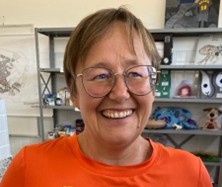
Anna Bajer, Professor PhD
Head of the Department of Eco-epidemiology of Parasitic Diseases, Faculty of Biology, University of Warsaw
In recent years there is a growing impact of parasitic diseases of environmental and zoonotic origin on human and animal health. My research interest is in ecological and epidemiological studies on such parasites. In Bajer lab we plan and perform a range of eco-epidemiological studies on ticks and vector-borne diseases (babesiosis, borreliosis, bartonellosis, dirofilariasis); on factors influencing parasite communities in rodents, as model free-living hosts (i.e. helminths and haemoparasite community); and on reservoir of intestinal microparasites (Cryptosporidium, Giardia). We are interested also in molecular diversity and molecular phylogeny of micro- and macroparasites of medical and veterinary significance.
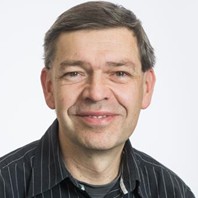
Per-Eric Lindgren, Professor in Medical Microbiology,
Linköping University, Sweden
Per-Eric Lindgren, Professor and Discipline Coordinator in Microbiology including Clinical Microbiology, Head of Division of Inflammation and Infection, Department of Biomedical and Clinical Sciences, Linköping University, Linköping, Sweden, and research leader, Laboratory Medicine, County Hospital Ryhov, Jönköping, Sweden.
Per-Eric Lindgren has extensive and long experience in One Health aspects of ticks and tick-borne infections including pathogenesis, molecular epidemiology and diagnostics. Lindgren have worked as project leader and coordinator on projects such as ScandTick Innovation, a project within the EU-Interreg ÖKS-programme, and NorthTick, a project within the EU-Interreg North Sea Region – programme. Lindgren is leading a research group at Linköping University and County Hospital Ryhov, Jönköping, consisting of several PhD-students, technicians and project students.
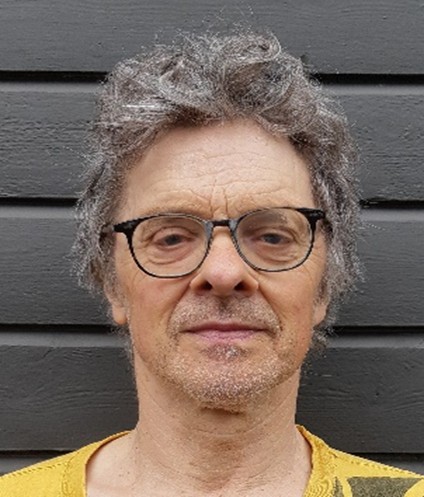
Snorre Stuen, Professor emeritus
University of Life Sciences, Faculty of Veterinary Medicine, Norway
Snorre Stuen (MSc, DVM, PhD, Dr. philos) is a professor emeritus at the University of Life Sciences in Norway and has been working with ticks and tick-borne infections in several national and international projects for nearly 40 years. He has especially worked with Anaplasma phagocytopilum infections in animals, using particularly sheep as a model animal.
Programme overview
The conference will be held at the Vytautas Magnus University, Kaunas, Lithuania (S. Daukanto str. 28)
| Tuesday | Wednesday | Thursday | Friday | ||||
| 17:00-18:00
|
Registration
|
9:00-10:00 | Registration | 9:00-9:45 | Plenary session | 9:00-17:00 | Excursion to The Open-Air Museum of Lithuania |
| 10:00-10:20 | Opening Ceremony | 9:45-10:30 | Oral presentations | ||||
| 10:20-11:05 | Plenary session | ||||||
| 11:05-11:40 | Coffee break | 10:30-11:10 | Coffee break | ||||
| 11:40-12:30 | Oral presentations | 11:10-12:10 | Oral presentations | ||||
| 12:30-13:30 | Lunch | 12:30-13:30 | Lunch | ||||
| 13:40-14:25 | Plenary session | 13:30-14:00 | Coffee break | ||||
| 14:25-15:10 | Oral presentations | 14:00-14:50 | Poster presentations | ||||
| 15:10-15:40 | Coffee break | 14:50-15:00 | Closing remarks | ||||
| 15:40-17:00 | Poster presentations | 15.30-18.00 | Kaunas Tadas Ivanauskas Museum of Zoology | ||||
| 18:00-20:00 | Welcome party | 18.00-22.00 | Gala dinner | ||||
Detaled programme
| 30th September 2025 | |
| 17:00-18:00 | Registration |
| 18:00-20:00 | Welcome party |
| 1st October 2025 | |
| 9:00-10:00 | Registration |
| 10:00-10:20 | Opening Ceremony |
| 10:00-10:10 | Welcome word from the Vice-Rector of Vytautas Magnus University, Rolandas Urbonas |
| 10:10-10:20 | Welcome word from the Chairman of the Scientific Committee, Algimantas Paulauskas |
| 10:20-11:05 | Plenary session
A One-Health Perspective on Ticks and Tick-Borne Diseases: Experience on Transmission Dynamics and Epidemiology from Scandinavia. Per-Eric Lindgren, Sweden |
| 11:05-11:40 | Coffee break |
| 11:40-12:30 | Oral presentations
Chairman: Per-Eric Lindgren, Sweden; Krzysztof Anusz, Poland |
| 11:40-11:55 | Lithuanian – Norwegian Collaboration in Long-term Investigations of Ticks and Tick-borne Pathogens. Algimantas Paulauskas, Lithuania |
| 11:55-12:10 | The First Finding of Hyalomma rufipes in Poland in 2024: the Promising Start of a Citizen Science Project. Wiktoria Romanek, Poland |
| 12:10-12:25 | Tick-Borne Pathogens in Urban Habitats of Lithuania: Assessing Disease Risk in Recreational and Residential Areas. Jana Radzijevskaja, Lithuania |
| 12:30-13:30 | Lunch (Restaurant “Višta puode”, S. Daukanto str. 23, Kaunas) |
| 13:40-14:25 | Plenary session
Tick-borne Diseases in Domestic Ruminants, with Special Focus on Anaplasmosis. Snorre Stuen, Norway |
| 14:25-15:10 | Oral presentations
Chairman: Karen Angeliki Krogfelt, Denmark; Jana Radzijevskaja, Lithuania |
| 14:25-14:40 | Infection of Alpacas with Anaplasma phagocytophilum in Lithuania. Donata Mikalauskienė, Lithuania |
| 14:40-14:55 | Comprehensive Assessment of Tick-Borne Pathogens in Urban Areas Using a Multiplex PCR-based Aapproach. Asta Križanauskienė, Lithuania |
| 14:55-15:10 | A Novel Approach Preventing Spirochaetes Spread in Human Skin Models (Genoskin). Anna Bajer, Poland |
| 15:10-15:40 | Coffee break |
| 15:40-17:00 | Poster presentations |
| 18:00-22:00 | Gala dinner (Restaurant “Avilys”, Vilniaus str. 34) |
| 2nd October 2025 | |
| 9:00-9:45 | Plenary session
The Eco-epidemiology of Babesia spp.– tick Interaction. Anna Bajer, Poland |
| 9:45-10:30 | Oral presentations
Chairman: Anna Bajer, Poland; Algimantas Paulauskas, Lithuania |
| 9:45-10:00 | Quantitative Assessment of Tick-Borne Encephalitis Virus Loads Across Hosts and Vectors Using Digital PCR. Arnoldas Pautienius, Lithuania |
| 10:00-10:15 | Detection and Genetic Diversity of Tick-Borne Encephalitis Virus in Lithuania. Marina Sidorenko, Lithuania |
| 10:15-10:30 | Fast-Track TBE Immunity: Rapid Protection Via Accelerated Vaccination Schedules. Julia (Síle) Kinane Simonsen, Denmark |
| 10:30-11:10 | Coffee break |
| 11:10-11:25 | Isolation of Tick-Borne Encephalitis Virus from Naturally Infected Dogs. Arūnas Stankevičius, Lithuania |
| 11:25-11:40 | Host spectrum impact on the genetic population structure of ticks. Branka Bilbija, Czech Republic |
| 11:40-11:55 | Tick Distribution in Denmark by Citizen Science: flaatinfo.dk. Karen Angeliki Krogfelt, Denmark |
| 11:55-12:10 | Molecular Detection of Pathogens in Bat-Associated Argas vespertilionis Ticks. Povilas Sakalauskas, Lithuania |
| 12:30-13:30 | Lunch (Restaurant “Višta puode”, S. Daukanto str. 23, Kaunas) |
| 13:30-14:00 | Coffee break |
| 14:00-14:50 | Poster presentations |
| 14:50-15:00 | Closing remarks |
| 15:30-17:00 | Kaunas Tadas Ivanauskas Museum of Zoology (Laisvės al. 106, Kaunas) |
| 3rd October 2025 | |
| 9:00-18:00 | Excursion to The Open-Air Museum of Lithuania
Guided tour of the Open-Air Museum. Educational program. Lunch included. |
| POSTER PRESENTATIONS | |
| 1 st October 2025, 15:40-17:00 | |
| 1. | Detection of Tick-borne Pathogens in Mustelidae from Lithuania and Latvia. Asta Aleksandravičienė, Lithuania |
| 2. | Occurrence of Tick-borne Pathogens in European badgers from Lithuania. Asta Aleksandravičienė, Lithuania |
| 3. | Molecular Identification of Rickettsia spp. in Ticks from Urban Areas. Muhammad Anwar ul Haq, Lithuania |
| 4. | Prevalence of Borrelia spp. in Urban and Peri-Urban Tick Populations of Kaunas, Lithuania. Saulius Bernotas, Lithuania |
| 5. | Molecular Screening for Tick-Borne Encephalitis Virus in Urban Tick Populations. Martynas Jonkus, Lithuania |
| 6. | Occurrence of Rickettsia spp. in Ticks and Mites Infesting Small Rodents in Lithuania. Evelina Kaminskienė, Lithuania |
| 7. | Red Foxes (Vulpes vulpes) as Hosts of Tick-borne Pathogens in Lithuania. Ugnė Medikaitė, Lithuania |
| 8. | Experimental Infections with Rickettsia helvetica: Why Ixodes ricinus Poses a Greater Risk Than Dermacentor marginatus? Lenka Minichová, Czech Republic |
| 9. | Nymphal Ticks from Wild Birds: Microbiome Differences Linked to Rickettsia Infection. Agne Namiņa, Latvia |
| 10. | Molecular Evidence of Zoonotic Rickettsia spp. in Cats and Their Ectoparasites in Lithuania. Miglė Razgūnaitė, Lithuania |
| 11. | Seasonal Activity of Ixodes ricinus Ticks Under the Impact of Global Changes In Bratislava, Slovakia. Veronika Rusňáková Tarageľová, Slovakia |
| 12. | From Ticks to Nanodots: Carbon Quantum Dots as a Novel Strategy Against Rickettsia. Eva Špitalská, Slovakia |
| 2 st October 2025, 14:00-14:50 | |
| 13. | Regulatory Cytokines in Dogs Naturally Infected with Babesia canis. Dorota Dwużnik-Szarek, Poland |
| 14. | Molecular Detection of Hepatozoon canis in Dogs in Lithuania. Mingailė Gėgžnaitė, Lithuania |
| 15. | Prevalence of Tick-Borne Pathogens in Pet Dogs in Lithuania. Karolina Jankauskaitė, Lithuania |
| 16. | Molecular Insights Into ITP-like (ITPL) Neuropeptide Signalling in the Tick Ixodes ricinus. Vanda Klöcklerová, Slovakia |
| 17. | Borrelia Infections in Rodent-Associated Ixodid Ticks from Lithuania. Dalytė Mardosaitė-Busaitienė, Lithuania |
| 18. | Impaired Regulatory Immune Response in Dogs with Babesiosis. Marta Maruszewska-Cheruiyot, Poland |
| 19. | Detection and Characterization of Babesia spp. in Lithuanian Red Deer (Cervus elaphus). Irma Ražanskė, Lithuania |
| 20. | Linking Moose Calf Mortality to Anaplasma phagocytophilum Infections. Irma Ražanskė, Lithuania |
| 21. | Borrelia spp. and Rickettsia spp. in Urban Parks of Bratislava (Western Slovakia), Estimation of Risk and Treatment of Infections. Diana Selyemová, Slovakia |
| 22. | Clinical Manifestations of Canine Babesiosis and their Association with Hematological Findings and Outcome of Disease. Inga Stadalienė, Lithuania |
| 23. | Diversity and Distribution of Ticks Collected from Vegetation and Domestic Animals in Zambia. Dagmara Wężyk, Poland |
Participants of the BalTick25 conference are cordially invited to submit full papers to the journal Biologija (ISSN 1392-0146 [Print]; ISSN 2029-0578 [Online]) with no publication fees.
Please, send the full paper until November 15 by e-mail biologija@vdu.lt
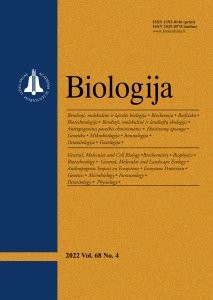 Biologija covers a broad spectrum and brings together various disciplines. Multidisciplinary approaches and the use of conventional and novel methods/methodologies (in the field and in the laboratory) are crucial for a deeper understanding of the effects of natural processes and human behavior/activities on the environment and the anthropogenic impact of economic development on ecosystems.
Biologija covers a broad spectrum and brings together various disciplines. Multidisciplinary approaches and the use of conventional and novel methods/methodologies (in the field and in the laboratory) are crucial for a deeper understanding of the effects of natural processes and human behavior/activities on the environment and the anthropogenic impact of economic development on ecosystems.
The journal covers the following topics: General, Molecular and Cell Biology / Biochemistry / Biophysics / Biotechnology / General, Molecular and Landscape Ecology / Anthropogenic Impact on Ecosystems / Ecosystem Protection / Genetics / Microbiology / Immunology / Parasitology / Physiology.
More information at: lmaleidykla.lt/ojs/index.php/biologija
Instructions for authors: lmaleidykla.lt/ojs/public/journals/2/Nurodymai_en.pdf
About Kaunas
Kaunas previously known as Kovno. It is the second largest city in Lithuania after Vilnius and an important centre of Lithuanian economic, academic, and cultural life. Modern Kaunas is a European city with beautiful architecture, medieval monuments and unique museums. In 2022 Kaunas was chosen as the European Capital of Culture. Kaunas interwar architecture was added to the UNESCO World Heritage List. About 1500 buildings are recognized as a significant value for all of humanity, present and future generations.

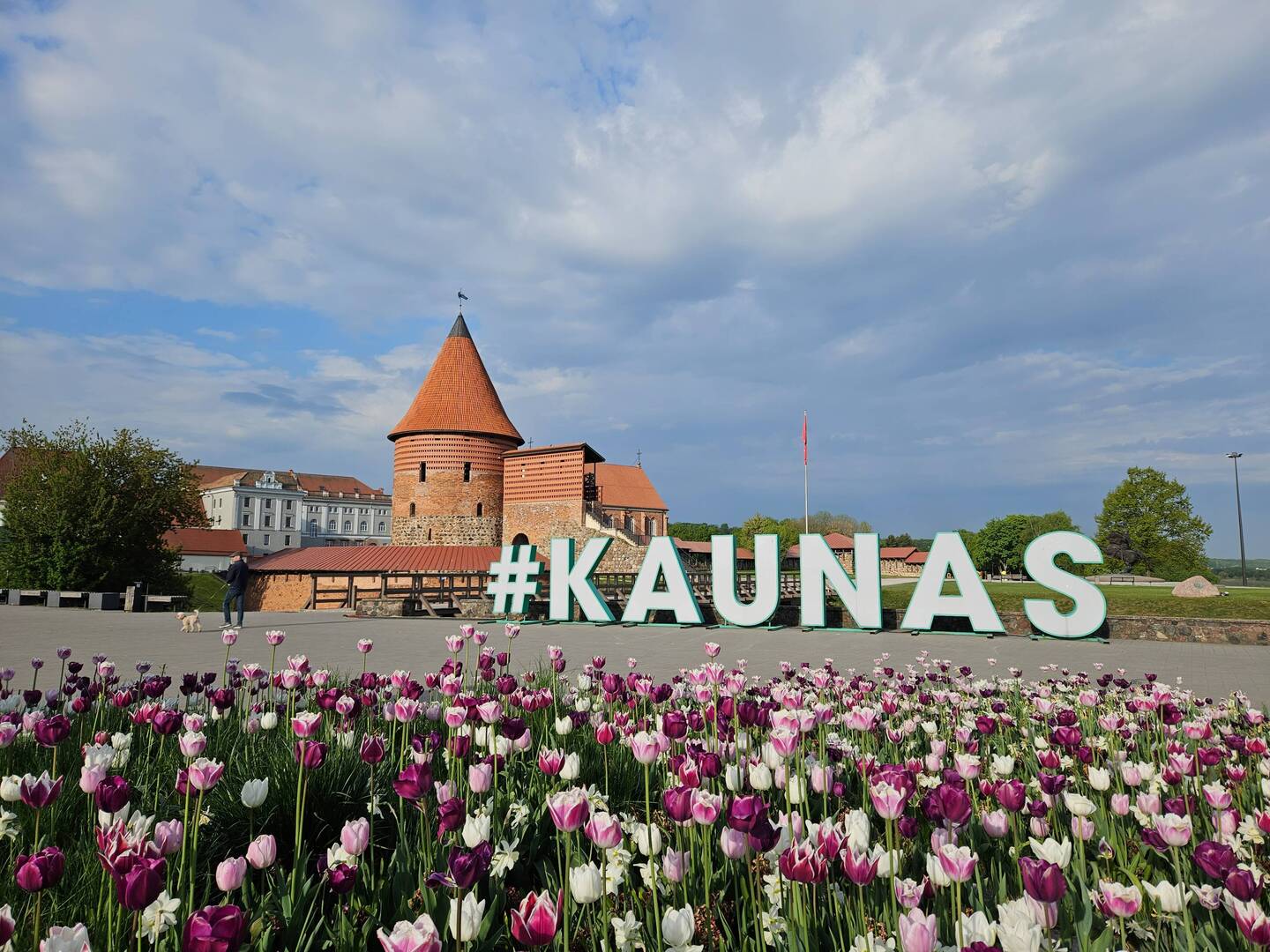
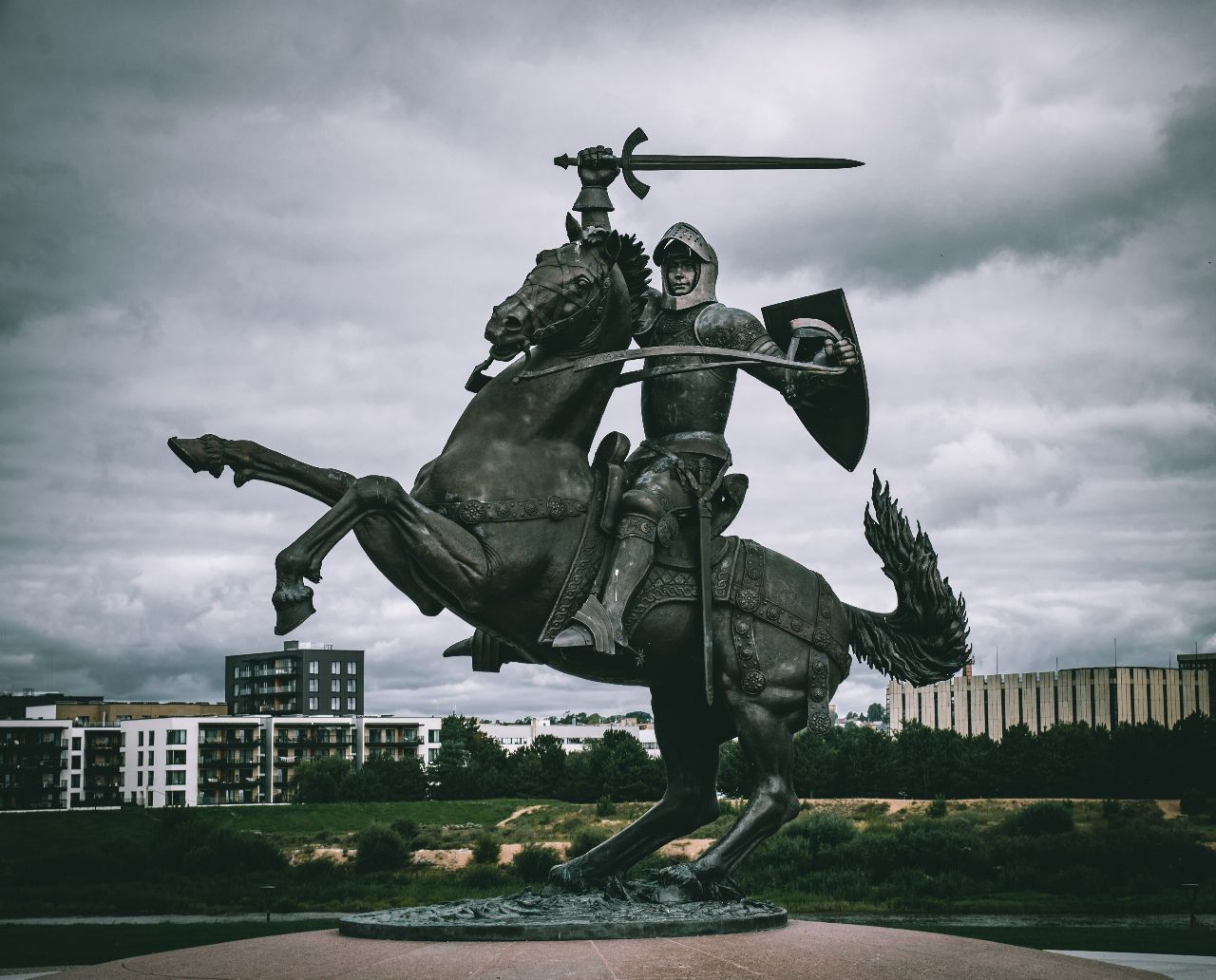
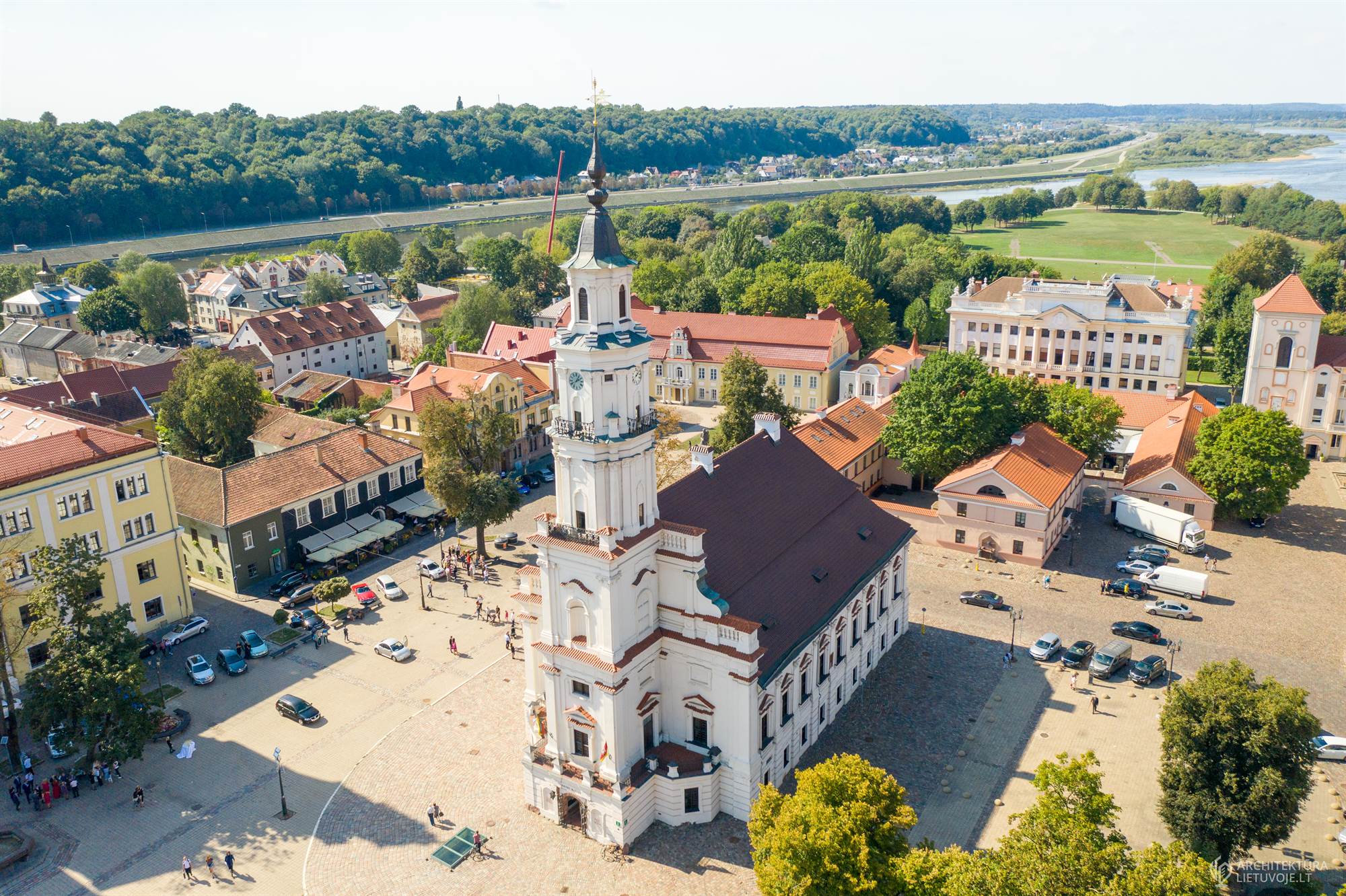
Travel information
Citizens of the EU and most European countries (including all Scandinavian countries) do not require a visa to enter Lithuania. For detailed information, please visit the website of the Lithuanian Ministry of Foreign Affairs: www.urm.lt. There are two international airports in Lithuania: one is located just outside of Kaunas, and the other one is in Vilnius, the capital of Lithuania.
Arrivals by plane
Direct flights to Kaunas or Vilnius airports are most likely available from your country.
City bus Numbers 29 and 29E go directly from Kaunas airport to the city centre. More information about fares from the airport is available at www.kaunas-airport.lt
Arrivals by bus
The distance between Kaunas and Vilnius is 100 km. Information about airport express from Vilnius airport can be found here: ollex.lt
Bus schedules within Kaunas can be accessed at kvt.lt and stops.lt.
Buses between Kaunas and Vilnius depart several times an hour between 5AM and midnight. The journey takes about 1.5 hours. Most buses have (free) wireless internet. For international travel Ecolines (ecolines.net) and other companies operate several daily buses from Riga and Tallinn, and from other national capitals of Europe.
By train
Kaunas train station (map) is located nearby to the bus station (map) in the city center. Several daily trains go between Kaunas and other major cities. Tickets and timetables can be found at litrail
How to find us
CONFERENCE VENUE: S. Daukanto str. 28, Kaunas
Accommodations
Accommodations should be booked by the participants themselves.
Here is a list of possible hotels nearest to the Conference venue:
These are all within walking distance to the Conference venue Keisti į These are all within walking distance to the Conference venue.
There are many public transit stops nearby the Conference venue, which is reachable from any part of Kaunas Keisti į There are many public transit.
There are also a lot of apartments available for rent. Feel free to explore for more options via booking.com or other services.
The Conference venue is located in the center of Kaunas at Vytautas Magnus University, whose address is – S.Daukanto str. 28, Kaunas, Lithuania.
There are many public transit stops nearby the Conference venue, which is reachable from any part of Kaunas.
Here is a suggested app and website for traveling in the city: trafi.com
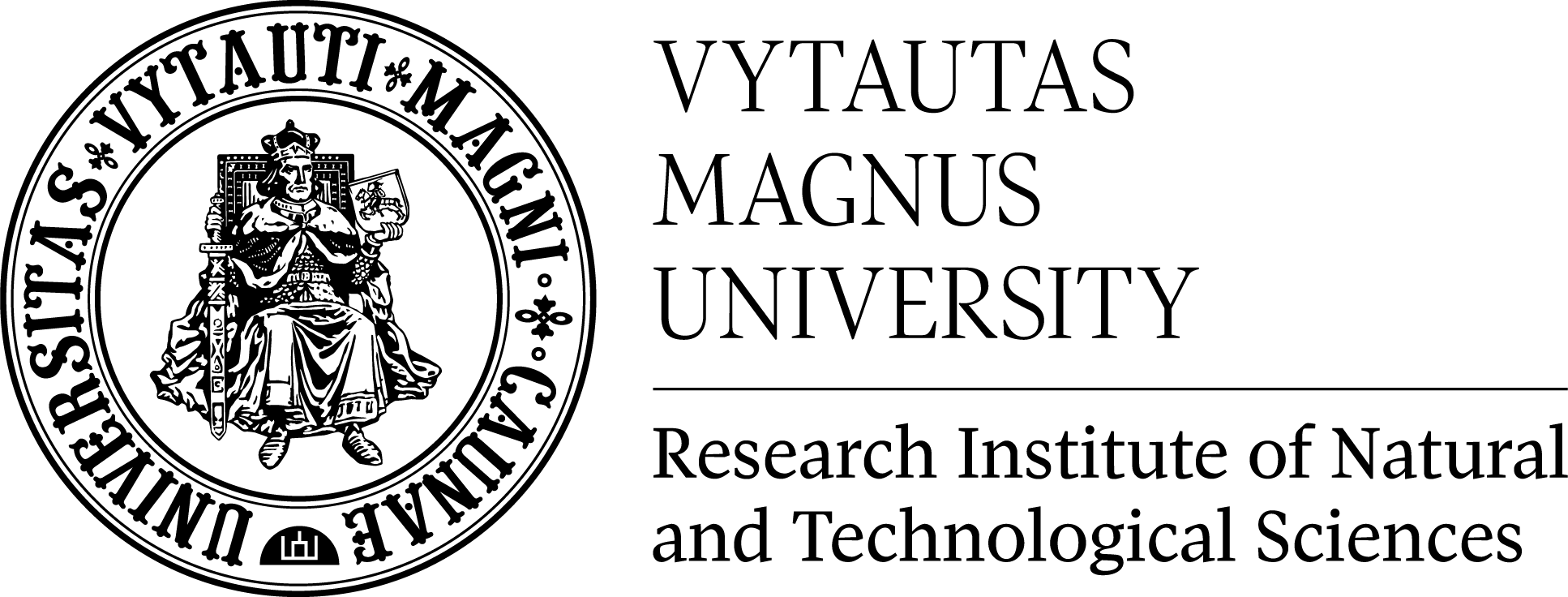 |
 |
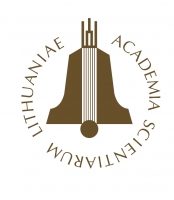 |
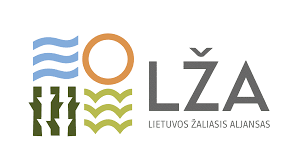 |
 |
Organizers: Vytautas Magnus University
Research Institute of Natural and Technological Sciences
Universiteto str. 10, Akademija, Kauno dist. LT-53361
Email: baltick25@vdu.lt
Conference venue: S.Daukanto str. 28, Kaunas, Lithuania
